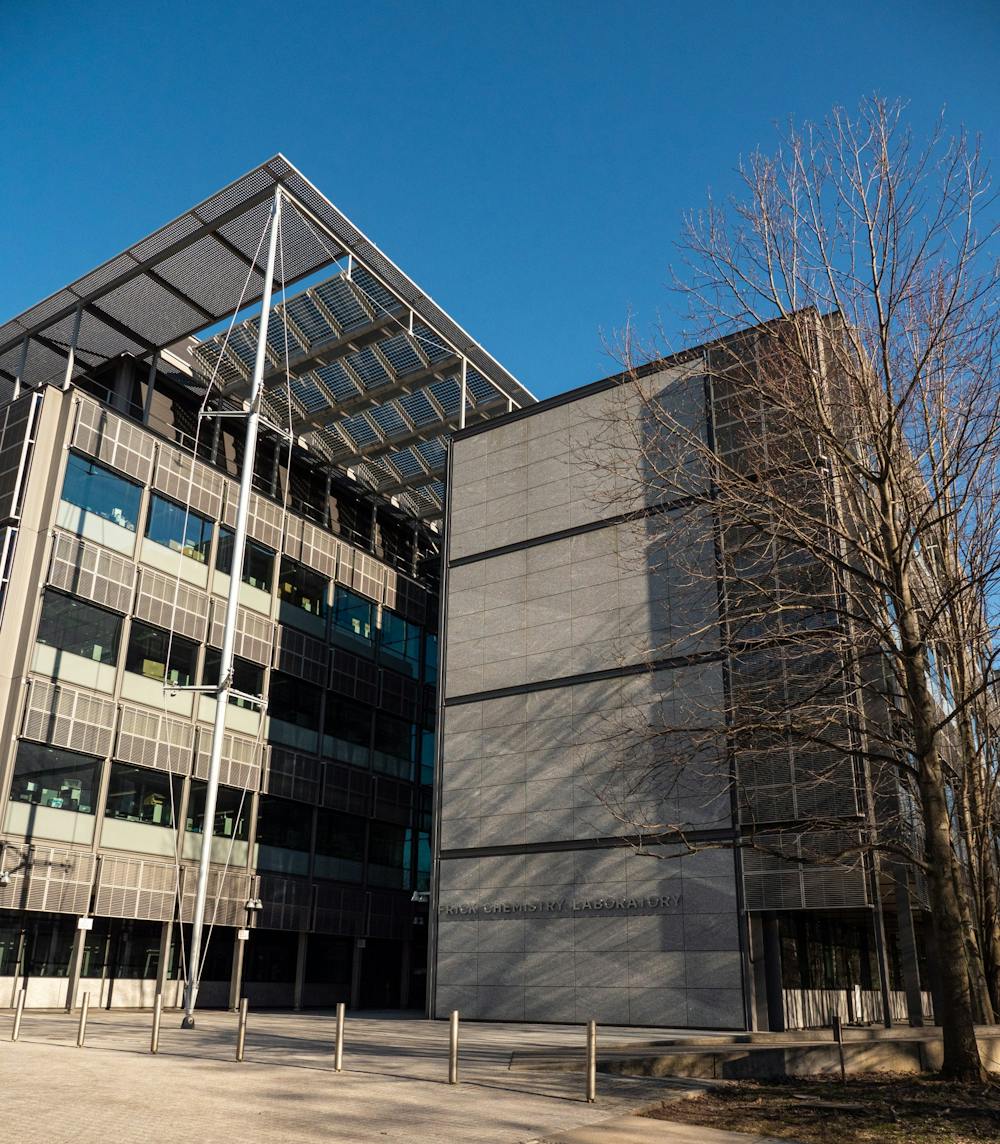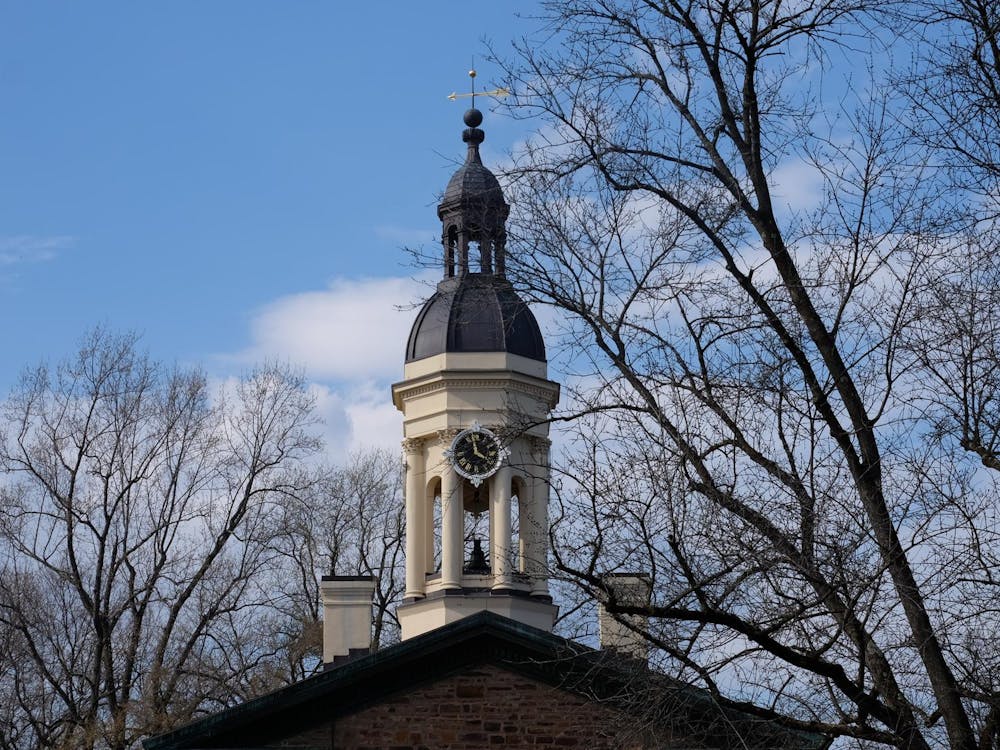In a world overflowing with challenges, from the existential threat of the climate crisis to growing economic inequality, innovation is a beacon of hope. But not all kinds of innovation contribute equally to human flourishing. As Princeton heads into the 21st century, it is crucial for us to discern between the transformative and the trivial: are we innovating for a better world, or just bigger profits?
I grew up hearing stories of the innovation of old — in the 1980s, in a lab under an hour’s drive away from Princeton, my grandfather invented a process for creating high-quality semiconductor repeaters that vastly improved AT&T’s trans-Atlantic cable. His friends in the lab down the hall helped create the fiber optic system of the cable. They all worked at Bell Labs — “The Idea Factory” — AT&T’s research arm where inventors worked on projects from the trans-Atlantic cable to the transistor. This was the innovation of the 20th century.
Contrast this with the barrage of emails in my Princeton inbox, touting insights on securing startup funding for your plugin or app or seminars on “how to be a venture capitalist.” In the face of the climate crisis, ecological breakdown, and escalating inequality, our generation faces a dire need for hard and often physical innovation. But the flavor of entrepreneurship promoted by Princetonians feels small-scale and greedy; although there are exceptions, the prevailing culture is narrowly focused on small tweaks fueling profits using existing technologies rather than innovating the groundbreaking, transformational technology and institutions that our world urgently needs.
A few examples of what Princetonians are putting time and money into:
Prospect Student Ventures supports companies including a pay-to-play marketplace for employee hiring, a company that says it will “revolutionize healthcare” with “payer-focused solutions that enhance efficiency and maximize value” (read: focus on extracting higher profits for health insurance companies, not on health), a plug-in that scans your online grocery shopping cart for nutritional value, and a higher-profit, easier way for wealthier people to invest in real estate or become a landlord.
TigerLaunch promotes companies who offer a way to skip the line at concert venues for a fee, a way to send songs to “music influencers” for a fee, and a way to port schedules between different web platforms.
And this isn’t limited to student-run organizations: the Keller Center eLab boasts companies selling an extension for food delivery to get on campus, a discount resale platform for overproduced clothing, a grocery-list-creating integration, and a plug-in for carbon offsetting at checkout while shopping online (by the way, carbon offsets don’t and can’t help achieve net zero greenhouse gas emissions).
Clearly, this kind of “rent-seeking” — an activity that exploits an information gap or presents commodities to consumers differently — is the easiest way to reap profits with very little innovation. “Rent-seeking,” a term coined by economist Anne Krueger, refers to profiting through market manipulation rather than by contributing to productivity. Though the term often describes lobbying or policy influence, it’s also a useful way to describe other types of efforts to amass wealth with minimal productivity impact.
The phenomenon of rent-seeking innovation goes beyond Princeton: it is epitomized by companies like DoorDash and Uber and represents a significant departure from the spirit of genuine problem-solving. The “innovation” of these companies is to find more cost-efficient ways to sell an existing product (i.e. takeout, rides) — and for these companies who have made it big, the insight is generally new ways to exploit labor.
These rent-seeking services often provide a product that people want to consume — and they can even have a positive impact — but they fall short of the transformative potential that innovation can bring us and that Princetonians are uniquely positioned and resourced to realize. These companies do not address the pressing issues that demand our attention and ingenuity, like electricity storage, biodiversity restoration, sustainable materials, water accessibility, large-scale carbon capture, affordable and sustainable housing, education innovation, redistributive financial vehicles, medical advances, and effective mental health treatments, to name a few. We can’t afford to use our time on rent-seeking — wringing out the dregs of profit by making broken systems run more smoothly when we so desperately need innovation that tackles problems systemically.
Part of the problem is that Princeton’s “startup culture” is just not well-suited to attack today’s problems. The overwhelming profit incentive, no matter how insignificant the “solution” provided or how small the profit, leads to rent-seeking. We need new structures for innovation, ones that are strong, well-funded, and full of scientists and other transformational thinkers — we need a new Idea Factory modeled on Bell Labs. Princeton could be that, and undergraduate students can and should be involved.
Princeton and its community of innovators have a pivotal choice. True innovation involves the technological breakthroughs of basic science and medicine, systemic reform of law and policy, and the collective teamwork of building robust public institutions to support human flourishing. Princeton has the talent, resources, and responsibility to lead this charge. By embracing this more ambitious vision of innovation, we can pave the way for a future where it catalyzes societal transformation. We can’t afford to settle for the illusion of progress.

Eleanor Clemans-Cope (she/her) is a sophomore from Rockville, Maryland intending to study economics. She spends her time making music with Princeton University Orchestra and the Triangle Club and good trouble with Divest Princeton. She can be reached on Twitter at @eleanorjcc or by email at eleanor.cc@princeton.edu.








